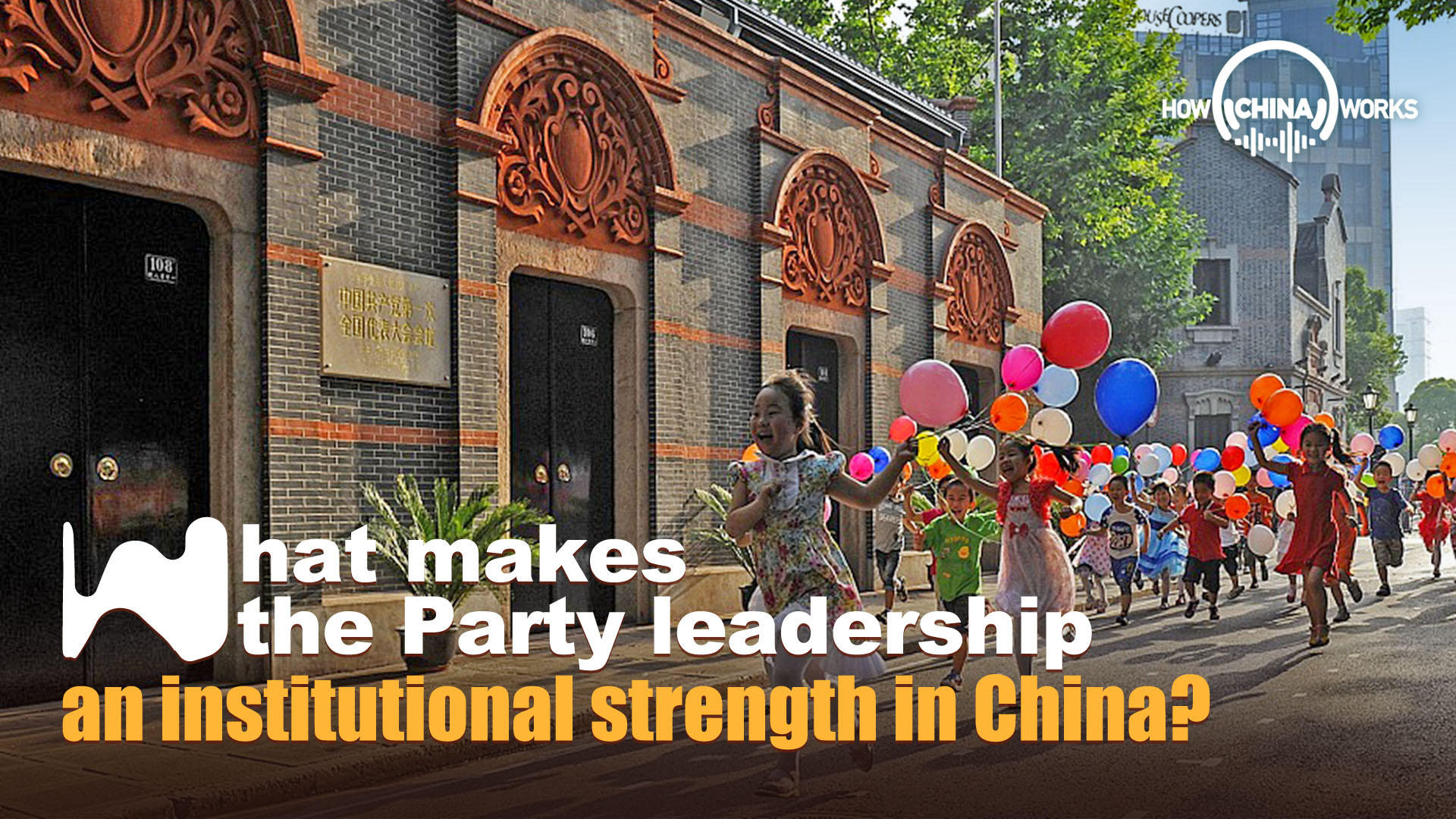
You may find the phrase "Chinese characteristics" familiar if you read books, articles and online content about China. But what is meant when we say Chinese characteristics?
According to President Xi Jinping, the most important feature of socialism with Chinese characteristics is that the country is under the leadership of the Communist Party of China (CPC).
The CPC leadership has gained the recognition and support of the Chinese people through decades of their pursuit of and struggle for national independence and prosperity.
Over the past 100 years, the CPC has evolved from a small group of some 50 members into one of the largest parties in the world, with more than 90 million active members.
Before the Party was founded, China was in the throes of a society plagued by feudalism and colonialism, with many lives torn apart by the ceaseless strife breaking out within the Chinese border. The CPC, which was founded in July 1921, injected hope into the masses.
At the time, China was largely made up of peasants who did not own land and were subjugated by landowners. Through strategies like "encircling the city from the rural areas" and reform initiatives such as redistributing the land to the peasants, the Party mobilized the vast majority of the peasantry and formed a united front comprising workers, peasants, democrats and intellectuals, successfully leading the Chinese people in defeating those standing in the way of Chinese unification while rooting out the historical woes that rendered China vulnerable.
The people's republic was founded amid cheers and elation. But the Party's mission did not end there. Since then, China under the CPC has continued to make great strides in terms of social welfare and economic prowess.
In the 30 years that followed the country's foundation, the CPC, guided by the principle of self-reliance, devoted itself to industrializing China. With focus on accelerating the process, a complete industrial system was established. In 1978, Deng Xiaoping initiated the reform and opening-up policy, paving the way for the country's rapid economic growth.
The groundbreaking reform initiatives have injected energy and vigor into China's economic development. But new challenges also emerged in the meantime. To overcome these products of the period, the CPC formulated approaches – advancing with time, emancipating the mind and seeking the truth from facts – that would set the country on a new course. As China learned from developed countries' experience in developing market economies, a sophisticated social management and economic system with Chinese characteristics gradually came into shape.
03:31

Through over four decades of opening-up, China has made profound achievements and become the world's second largest economy. The goal of leading the people to prosperity was achieved.
The 18th and 19th National Congresses of the CPC became another defining moment for China. Xi, who said socialism with Chinese characteristics has entered into a new era, placed issues concerning Chinese people's well-being in a more prominent position.
"This is a new historic juncture in China's development. It will be an era for the Chinese people of all ethnic groups to work together and work hard to create a better life for themselves and ultimately achieve common prosperity for everyone," he said.
The most fruitful of the efforts to improve people's lives is China's final victory in eradicating absolute poverty.
The past eight years have seen the final 98.99 million impoverished rural residents living under the current poverty line lifted out of absolute poverty, and all 832 impoverished counties and 128,000 villages removed from the poverty list.
Xi attributed this major success to the centralized and unified leadership of the CPC, which he said has provided a "political and organizational guarantee" for China's poverty alleviation efforts.
China's constitution specifies that the government, the organ for exercising state power and administering state affairs, operates under the Party's leadership. Under this framework, the CPC presents long-term goals, strategies and guiding principles for the country, while the National People's Congress formulates corresponding policies and the government is responsible for carrying them out.
This political framework has the advantage of ensuring the effectiveness of policy execution, making sure that once decisions and arrangements are made at the highest level, they are swiftly and correctly implemented by all levels of government.
Meanwhile, the Party's centralized and unified leadership has allowed it to oversee the overall picture and coordinate all government and Party branches. Throughout the campaign, the CPC led the poverty relief work with its 90 million members, and party chiefs at all levels were required to assume the primary responsibility for achieving the ambitious targets.
Summarizing China's experience in conquering absolute poverty, Xi said the country has blazed a poverty reduction trail and formed an anti-poverty theory with Chinese characteristics.
"We must ensure the principal status of the people and adhere to the Party's commitment to serving the public good and exercising power in the interests of the people," Xi said.

